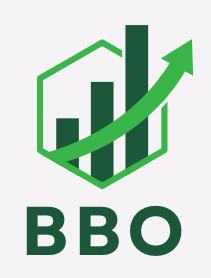Starting a successful online business from scratch is an exciting journey that offers numerous opportunities for those willing to put in the effort and creativity. In this guide, we will explore essential steps to help you navigate the process effectively, ensuring you build a strong foundation for your venture.

1. Identifying Your Niche
The first step in starting an online business is identifying a niche that resonates with your interests and skills. Here are some key points to consider:
Understanding Your Interests and Skills
Begin by reflecting on what you are passionate about and where your skills lie. This self-assessment will help you discover a niche that not only excites you but also allows you to leverage your strengths. For instance, if you have a knack for graphic design, consider starting a business that offers design services or digital products.
Market Research
Once you have a few ideas, conduct thorough market research. Use tools like Google Trends, social media platforms, and keyword research tools to gauge interest in your potential niche. Look for gaps in the market that you can fill. For example, if you notice a growing interest in sustainable products, you might explore creating an e-commerce store that specializes in eco-friendly items.
Competitor Analysis
Analyze existing businesses in your chosen niche. Identify their strengths and weaknesses, and think about how you can differentiate your business. This could involve offering unique products, superior customer service, or a more engaging online experience. Understanding your competition will also help you set realistic expectations and goals for your business.
2. Developing a Business Plan
A solid business plan is crucial for guiding your online business journey. Here’s how to create one:
Setting Goals
Outline your short-term and long-term goals. What do you want to achieve within the first year? Five years? Having clear objectives can guide your strategy and decision-making. For instance, you might aim to achieve a certain revenue target or build a specific number of loyal customers.
Defining Your Target Audience
Create a profile of your ideal customer. Understanding their demographics, interests, and pain points will help you tailor your marketing efforts and product offerings. Consider conducting surveys or interviews to gather insights directly from potential customers.
Financial Planning
Estimate your startup costs and create a budget. Consider expenses such as website development, marketing, and inventory. Outline your revenue streams and how you plan to achieve profitability. This financial roadmap will be essential for keeping your business on track and ensuring you have the resources needed to grow.
3. Building Your Online Presence
Once you have a business plan in place, it’s time to establish your online presence:
Choosing a Business Model
Decide on the type of online business you want to start, whether it’s e-commerce, affiliate marketing, digital products, or services. Each model has its own set of requirements and strategies. For example, if you choose e-commerce, you’ll need to manage inventory and shipping, while affiliate marketing may involve creating content to drive traffic to other businesses.
Creating a Website
Invest in a professional website that reflects your brand. Use platforms like Shopify, WordPress, or Wix to build your site. Ensure it is user-friendly, mobile-responsive, and optimized for search engines. Your website is often the first impression potential customers will have of your business, so make it count.
Establishing Social Media Accounts
Create profiles on relevant social media platforms to connect with your audience. Share valuable content and engage with your followers to build a community around your brand. Social media can be a powerful tool for driving traffic to your website and increasing brand awareness.
4. Marketing Your Business
Effective marketing is essential for attracting customers to your online business. Here are some strategies to consider:
Content Marketing
Develop a content strategy that includes blogs, videos, and infographics. Providing valuable content can establish you as an authority in your niche and drive organic traffic to your site. For instance, if you run a fitness-related business, consider creating workout guides or nutrition tips that resonate with your audience.
Email Marketing
Build an email list from day one. Use lead magnets like free e-books or discounts to encourage sign-ups. Regular newsletters can keep your audience engaged and informed about your offerings. Email marketing is a cost-effective way to nurture leads and convert them into paying customers.
Paid Advertising
Consider using paid advertising methods such as Google Ads or social media ads to reach a wider audience. Set a budget and track your return on investment to ensure effectiveness. Paid advertising can provide a quick boost to your visibility and help you reach potential customers who may not find you organically.
5. Analyzing and Adapting
The online business landscape is constantly changing, making it crucial to analyze your performance and adapt your strategies accordingly:
Tracking Metrics
Use analytics tools to monitor your website traffic, conversion rates, and customer behavior. Understanding these metrics will help you identify what’s working and what needs improvement. Tools like Google Analytics can provide valuable insights into your audience’s preferences and behaviors.
Gathering Feedback
Encourage customer feedback through surveys and reviews. This can provide valuable insights into your products and services, allowing you to make necessary adjustments. Listening to your customers can help you identify areas for improvement and enhance their overall experience.
Adapting Your Strategy
Stay informed about industry trends and be willing to adapt your strategies as needed. Continuous learning and flexibility can significantly contribute to your long-term success. For example, if you notice a shift in consumer preferences, be prepared to pivot your product offerings or marketing approach accordingly.
Conclusion
Starting a successful online business from scratch requires careful planning, execution, and a willingness to adapt. By identifying your niche, developing a solid business plan, building a strong online presence, effectively marketing your offerings, and continuously analyzing your performance, you can set yourself on the path to success. Remember, persistence and dedication are key to overcoming challenges and achieving your business goals.
In summary, while the journey may be challenging, the rewards of building a successful online business can be immense. Stay committed to your vision, be open to learning, and take action to turn your dreams into reality. With the right approach and mindset, you can create a thriving online business that not only meets your financial goals but also brings you personal fulfillment.

